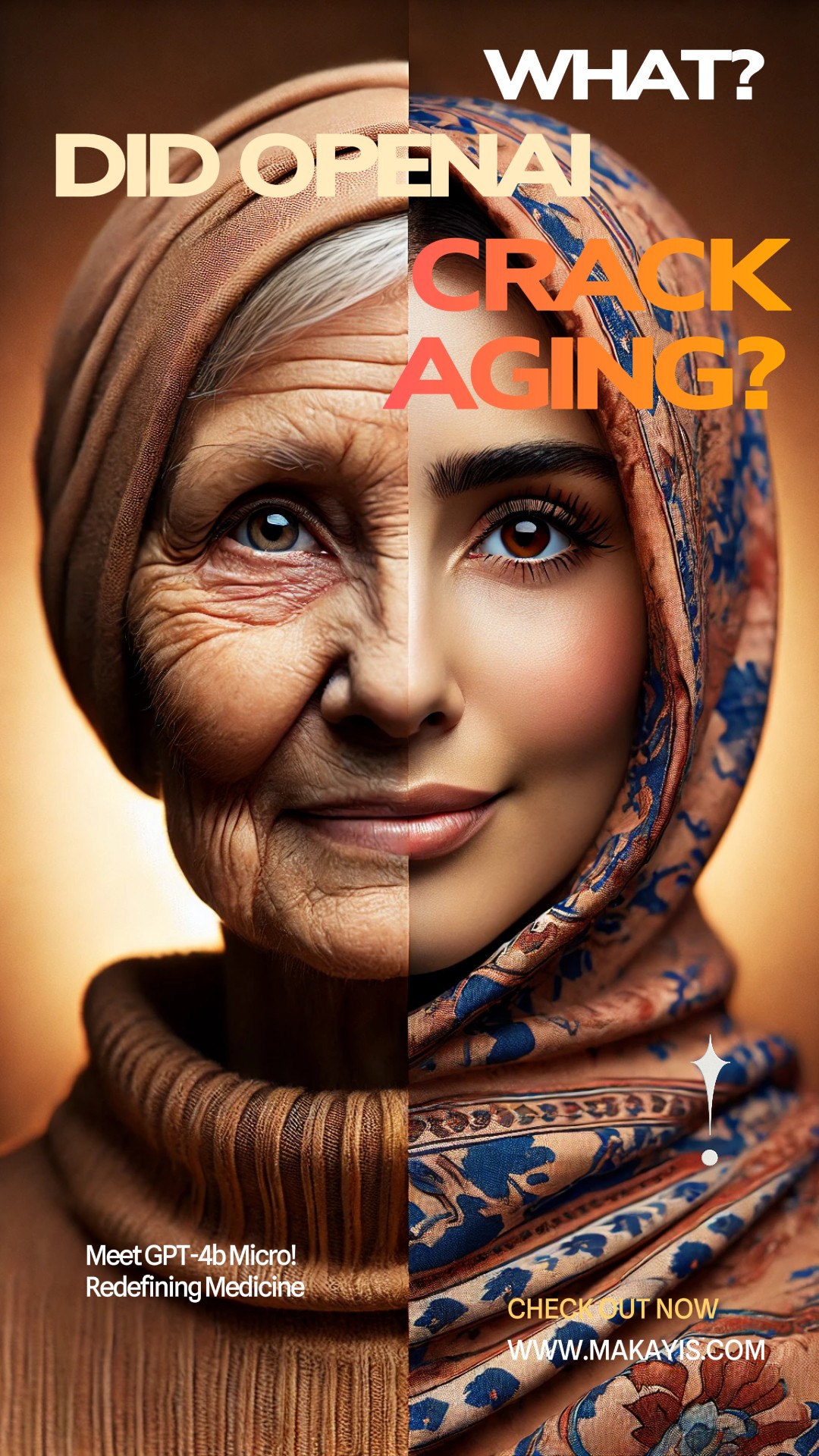A Step Closer to the Dream of Extended Longevity: How GPT-4b Micro is Advancing Anti-Aging Research

Introduction: The quest to extend human life and combat aging has entered a revolutionary new phase. OpenAI’s GPT-4b Micro, an AI model designed for protein engineering, is redefining how we approach anti-aging research and regenerative medicine. This technological breakthrough has the potential to transform healthcare and move us closer to achieving the dream of extended longevity.
What is GPT-4b Micro? OpenAI’s GPT-4b Micro is a specialized AI model tailored for biological data analysis and protein design. Unlike traditional AI models that excel in language and general tasks, GPT-4b Micro focuses on solving complex biological challenges, particularly in the field of stem cell reprogramming.
Key Features:
- Enhances protein engineering for improved efficiency.
- Tackles challenges in regenerative medicine by optimizing Yamanaka factors.
- Revolutionizes longevity science through innovative AI-driven solutions.
Breaking Barriers in Stem Cell Reprogramming Stem cell reprogramming, a pivotal process in regenerative medicine, has long been limited by inefficiencies. This is where GPT-4b Micro makes a significant impact. By redesigning Yamanaka factors—proteins essential for converting skin cells into versatile stem cells—the AI model has increased efficiency by over 50 times compared to human-designed methods.
This innovation not only accelerates progress in anti-aging research but also opens new possibilities for treating degenerative diseases and promoting organ regeneration.
A Visionary Partnership The development of GPT-4b Micro stems from a collaboration with Retro Biosciences, a leading company in longevity research. Backed by OpenAI CEO Sam Altman, who invested $180 million in the company, Retro Biosciences aims to extend human lifespan by 10 years.
According to Joe Betts-Lacroix, CEO of Retro Biosciences, GPT-4b Micro has surpassed expectations, offering groundbreaking protein designs that significantly enhance reprogramming efficiency.
Why GPT-4b Micro Matters:
- Advancing Longevity Science: By optimizing proteins, the model addresses core challenges in aging research.
- Faster Innovations: AI-driven solutions reduce the time required for biological discoveries, accelerating the path to real-world applications.
- Global Healthcare Impact: Affordable and efficient treatments could make anti-aging therapies accessible worldwide.
The Role of AI in Anti-Aging and Regenerative Medicine AI’s involvement in biotechnology is no longer a futuristic concept—it’s happening now. GPT-4b Micro demonstrates how AI models can collaborate with researchers to unlock the mysteries of aging, enhance human health, and combat the natural decline associated with time.
This breakthrough underscores the potential of combining AI-driven technologies with biological research to create innovative solutions that were once deemed impossible.
Future Implications The success of GPT-4b Micro is just the beginning. As AI continues to evolve, we can expect more breakthroughs in areas like:
- Genetic engineering
- Disease prevention
- Age-related treatments
- Precision medicine
The integration of AI in longevity science holds the promise of revolutionizing the way we approach human health and life extension.
Conclusion: OpenAI’s GPT-4b Micro is not just a technological leap; it’s a transformative step towards achieving the dream of extended longevity and advancing anti-aging research. By enhancing stem cell reprogramming and unlocking new possibilities in protein engineering, this AI model is poised to reshape the future of regenerative medicine.
Are you excited about the potential of AI in healthcare and longevity science? Share your thoughts in the comments below!
